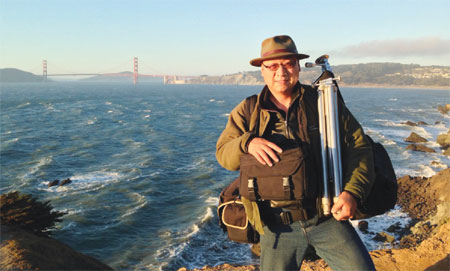Dong Xudong: No longer a 'headless fly'
Updated: 2014-08-08 12:47
By Chang Jun in San Francisco(China Daily USA)
|
||||||||
It took a wall coming down and feeling like a "headless fly" for Dong Xudong to learn how local politics work.
Now an active community leader and the current president of the North California Hebei Association, Dong is trying to make sure his fellow Chinese Americans are united and use their combined resources to help shape social and civic life in their communities.
"I strongly encourage new immigrants to get actively involved into community affairs, get familiar with the operation of the national machine, and use your right of vote and unite with people of similar mind to make changes to the society," said Dong.
Dong learned the importance of civic activism the hard way. He lost his battle against the Cupertino City Council at a hearing two years ago due to his lack of knowledge of the political system, procedures and rules of the game.
The city's planning commission approved construction of residential units on a site adjacent to Dong's house, where a retaining wall separated his residence from traffic noise on a busy road and guarded the serenity of his and other neighbors' houses.
"The city decided to take down the wall and gave the developer permission to build houses in one of the most pricey locations in the Silicon Valley without soliciting opinions of older residents and taking the loss of value in our houses into consideration," said Dong.
Long-time neighbors had told him that the city passed a resolution 30 years ago to build the retaining to "permanently block" residents from outside distractions.
So Dong went to city hall to search archives about the wall, but with no luck.
"I really didn't know where to start and how I should search," he said, adding he had never heard about "the burden of proof in a civil case is on the plaintiff."
Although two city council members of Asian origin tried to guide Dong through the lengthy procedure of filing a petition and asking for public hearings on taking down the wall, he said he still felt clueless and ran about like "a headless fly".
And that is when Dong resolved to be an advocate for getting more Asian Americans involved in the political arena in America.
"We need to leave our footprint in the gigantic political mechanism," said Dong. "We need to work together to send more Asian Americans to government organizations at different levels in America; prepare them for their future leadership role by honing their skills for better serving the country, and let them speak for our interest and fight for our civic rights."

A history major who tends to apply Confucius' teachings to his everyday life, he does not like to be in the spotlight and always prefers to give credit to his team members and believes action is louder than words.
For many years Dong has been a volunteer with several organizations focusing on Chinese cultural and athletic affairs in Northern California, and he also has been an advocate of the peaceful reunification between the Chinese mainland and Taiwan. "Solidarity is power. We Chinese need to unite but not to divide," said Dong, adding that he practices what he preaches. "Without caring much about my own fame and gain, I feel the pure pleasure out of being a volunteer," he added.
Dong keeps expanding his network and links to people through photography. For many living in the San Francisco Bay Area, Dong's face is familiar because he shows up at almost every important social gathering of Chinese communities to observe, to listen, to mobilize and to share. And his physical presence of being 6-feet-2 inches tall easily calls attention to him, as does his photographer's outfit and all the Leica cameras he uses to randomly shoot pictures.
Those lenses have captured a wide scope of many "precious moments of historic importance" in San Francisco and surrounding areas, including Asian Americans' protests for equal civic rights, cultural heritage activities among various ethnic groups, as well as the daily laughter and sorrows of overseas Chinese.
Of the pictures he has taken and film footages he has made, Dong believes recordings of historical events are invaluable for future generations, "especially when they want to learn more about their roots and forbearances of their ancestors," he said.
Last year, Dong was on the street with fellow citizens in San Francisco on Nov 9 to protest the controversial remark of "kill everyone in China" by ABC TV's Jimmy Kimmel on his talk show that aired on Oct 16.
Kimmel was speaking with a group of children, aged 5 and 6, about how the US government should pay back the $1.3 trillion debt owed to China when one boy said, "Kill everyone in China." "Kill everyone in China? OK, that's an interesting idea," Kimmel said. He then posed the question: "Should we allow the Chinese to live?"
"I felt Kimmel's comments were unacceptable," said Dong, adding that prejudice against Chinese immigrants is still prevalent in the US. "I feel it everywhere," he said.
On March 2, Dong appeared at the Cupertino town hall meeting on a subject that many Asian-American families regarded as racial discrimination and unfair for every student in California: the proposed state Senate constitutional amendment No 5, better known as SCA-5.
The proposed amendment was passed by the state Senate on Jan 30 by a two-thirds majority. Written by Senator Ed Hernandez, the bill would have allowed public education institutions such as the University of California and the California State University systems, as well as K-12 schools, to use race, sex, color, ethnicity or national origin as a consideration for admitting students or hiring employees. Eventually the proposed amendment was withdrawn.
"I felt the political enthusiasm this time among our Asian families. How dare some politicians go so far to touch the education issue of our children?" said Dong, adding the only way to correct civic inequality is to fight through united community movement in an organized way.
Dong came to the United States from China in March 1992 with a few dollar bills in his pocket; he spoke broken English and didn't have much knowledge about America.
For the former editor at a prestigious newspaper in Beijing and the son of a high-ranking Chinese government official, Dong said life in those early immigration days was "a downfall from heaven to hell."
Like many Chinese immigrants in early 1990s, Dong encountered numerous hardships and frustrations. He started washing plates and serving customers at a Chinese restaurant in San Francisco, "One time, I had deep cuts in two fingers but I could not afford stop washing kitchen utensils," said Dong.
Later on, he transferred to a warehouse for a monthly paycheck of $2,000 but the financial problems remained. In 1995, Dong managed to buy a residential complex and converted it into an assisted-living facility for the elderly.
Now the operator of three facilities for seniors, Dong said financial security is no longer a concern. "What I want to do is to help make the world a better place for our children, and children's children," he said.
Dong said he is excited to see that the young generation of Chinese immigrants is more confident in themselves, more knowledgeable about this country's political systems and more motivated to speak out when they find there is social inequality and abuse of power.
"They will bring more changes and make bigger difference," he said.
junechang@chinadailyusa.com
|
Dong Xudong is an active community leader and the current president of the North California Hebei Association. Provided to China Daily |
(China Daily USA 08/08/2014 page11)

 Daredevil dancer conquers mountain
Daredevil dancer conquers mountain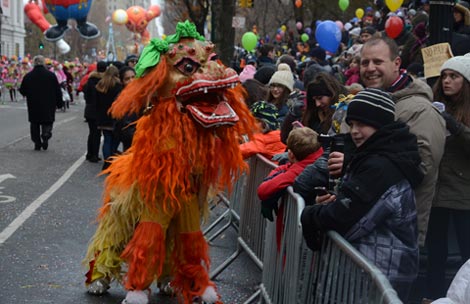
 Chinese float gives joy at Macy's parade
Chinese float gives joy at Macy's parade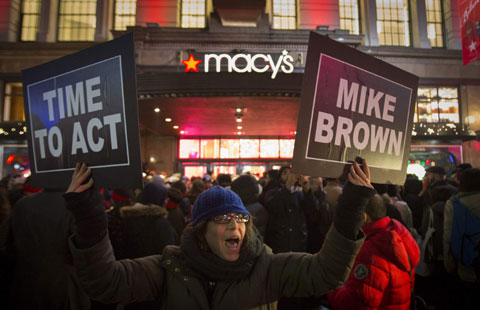
 Calm comes to troubled Ferguson
Calm comes to troubled Ferguson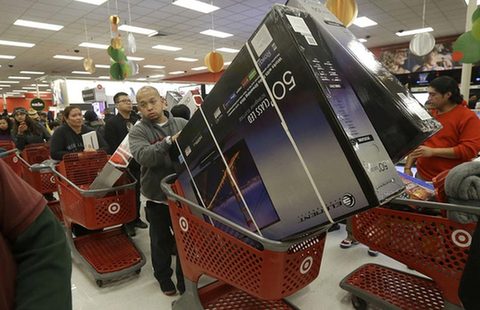
 6 things you should know about Black Friday
6 things you should know about Black Friday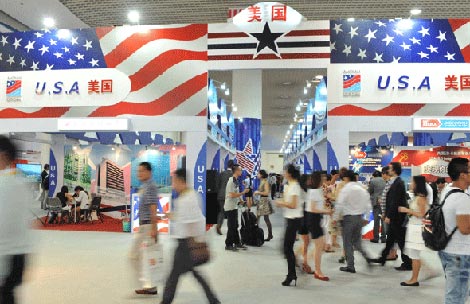
 Visa change may boost tourism to the US
Visa change may boost tourism to the US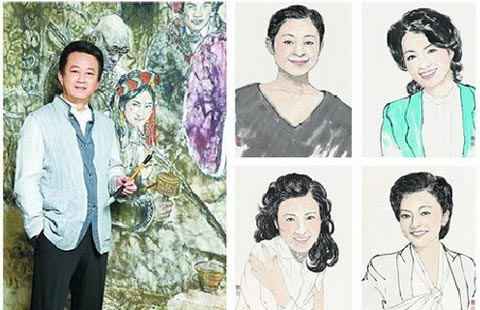
 China's celebrity painters
China's celebrity painters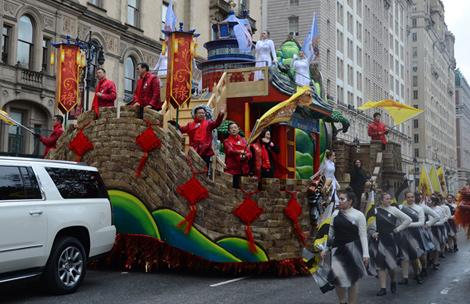
 Beauty of Beijing float making debut in Macy's parade
Beauty of Beijing float making debut in Macy's parade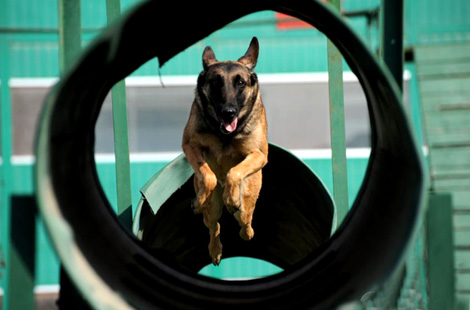
 Rescue dogs show skills in NW China
Rescue dogs show skills in NW China
Most Viewed
Editor's Picks
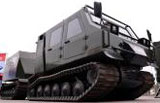
|
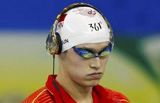
|
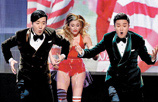
|
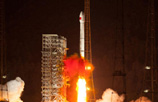
|
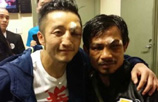
|

|
Today's Top News
China, US fight terror on the Internet
How to give is focus of philanthropy forum
China, US diverge on approaches to nuclear energy
China's local govt debt in spotlight
Macy's looks to appeal to more Chinese customers
Clearer view of Africa called for
Cupertino, California council is majority Asian
BMO Global Asset Management Launches ETFs in Hong Kong
US Weekly

|

|
